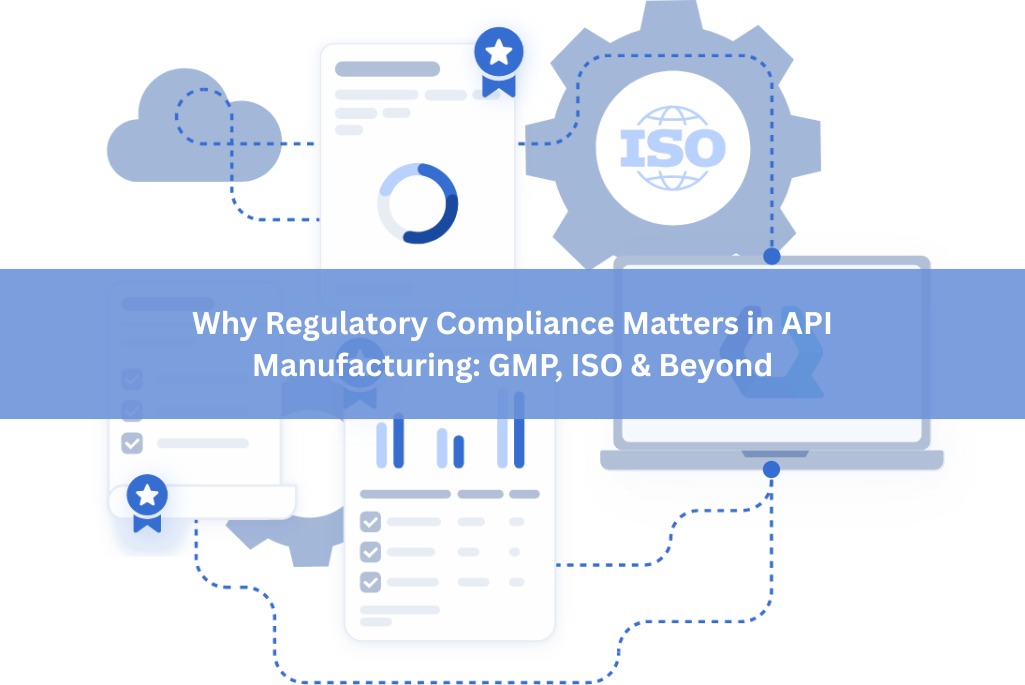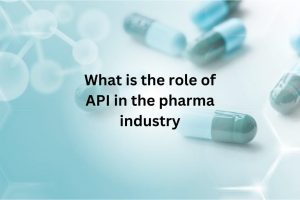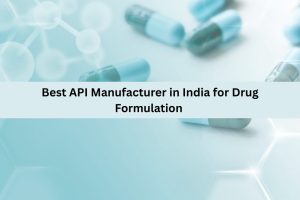APIs are the core of any medicine. Therefore, the API manufacturing companies are expected to maintain high pharma regulatory compliance. But what are those pharmaceutical compliances, and why should the API manufacturers adhere to them? Let’s discuss this briefly in this blog!
We will discuss the need for regulatory compliance in the pharma industry, especially regarding the API production and what the common regulatory compliance API manufacturers, like Chemox Pharma, need to follow.
Why is pharma regulatory compliance necessary for API manufacturers?
Pharmaceutical compliance doesn’t just concern the manufacturer but also the consumer. The following are a few reasons why there are strict regulatory compliance requirements that API manufacturers must follow.
Ensuring the efficacy of the drug
API regulatory compliance ensures that each batch uses the precise quantities of raw materials and intermediates to maintain the efficacy of the API. The testing and quality checking ensure that there is no compromise in the quality of the API, the therapeutic component of any drug.
Safety of the drug for consumption
Good manufacturing practices (GMP) are a big part of regulatory compliance and ensure the safety of the equipment and the labs where API production will take place. The GMP standards are strict and focus on creating a controlled environment to avoid contamination, making the APIs safe for consumption by the patients.
Operational efficiency
The regulatory authorities focused on standard operating processes (SOPs), trained staff members, and structured layout to reduce waste and avoid contamination. It promotes operational efficiency, reduces costs, and helps manufacturers get the best productivity and return from the investment.
Gaining trust in the international market
When API manufacturers have international pharma regulatory compliance certifications such as WHO-GMP, US FDA, or EMA, they can easily enter highly regulated markets like the USA, Europe, and Japan. These regulatory authorities are known for their strict measures and compliance checks. Thus, the API manufacturer with GMP certification from an international pharma regulatory body gets an excellent credential.
What are the standard pharmaceutical compliances for API companies in India?
API manufacturing companies must follow pharma regulatory compliance to manufacture and market their products legally. They must adhere to best production and lab maintenance practices. The following are a few compliance practices that most Indian API manufacturers, like Chemox Pharma, undergo to establish their presence in the international market.
Local Drug Manufacturing License
The first step in setting up an API manufacturing company in India is to get a drug manufacturing license. For API manufacturing, you must get your license from the Drugs Controller General of India (DCGI) and adhere to the regulatory standards of the Central Drugs Standard Control Organization (CDSCO) in your production facility. These two government bodies oversee that you meet the standards for production and imports for APIs.
International GMP Approval
If you plan on expanding your presence in the international market, you must get international GMP approval. GMP in the pharmaceutical industry refers to the production standards regarding the facility, trained team members, and quality control.
International certificates such as WHO-GMP, US FDA GMP, EU GMP, and more indicate that your facility complies with the specific country or organization’s GMP standards. WHO-GMP helps you trade your APIs with members of the World Health Organization, or those who consider the WHO-GMP certificate valid.
DMF submission
While a Drug Master File (DMF) submission isn’t directly a pharmaceutical compliance, it helps you get a compliance certificate without disclosing your information to competitors. The DMF application enables you to inform the ingredients, processes, quality, and safety of your drug to authorities, allowing them to issue the regulatory certificates.
ISO certification
ISO certification helps the API manufacturer demonstrate their commitment to safety, environmental sustainability, and quality assurance. Having these certificates helps them easily penetrate the local markets, win over the local drug manufacturers, and gain trust in the international market. Most API suppliers need ISO 9001 for quality, ISO 14001 for environment, and ISO 17025 for laboratory compliance.
Data integrity
The API manufacturers must record each production cycle and ensure that their data is clear, transparent and always ready for audit. It ensures that each batch meets the regulatory standard, has consistent quality, and is safe for consumption.
Environmental & Pollution Control Compliance
Pharma is one of the top hazardous waste-creating industries. Therefore, they need Consent to Establish (CTE) and Consent to Operate (CTO) from Pollution Control Boards to ensure that they meet the necessary pollution control standards. Also, they must install Effluent Treatment and Hazardous Waste Management Plants to ensure that the waste is treated before releasing it into the open and the natural resources.
Periodic audits
API manufacturers must adhere to the standards regularly and undergo surprise audits periodically. It is to ensure that they meet the GMP standards and get the updated certifications to keep their validity in the market. They should also conduct an internal audit to check whether their team is meeting the quality standards or if they need to update a machine or technology to meet the quality and competitive standards.
Conclusion
Pharma regulatory compliance is critical for the API manufacturers to ensure that their pharma products meet the quality standards and are efficient. With pharmaceutical compliance, the API company ensures that their products are effective and safe for consumption. Additionally, they also gain the trust of international customers and can guarantee their operational efficiency. Some common regulatory compliances are Drug Manufacturing License, GMP certification, ISO certification, DMF submission, maintaining data integrity, regular audits, and environmental and pollution compliance. Chemox Pharma is a WHO-GMP approved Indian API manufacturer with presence in 20+ countries. Contact us now for consultation or custom API development!
FAQ
What are the API compliance standards?
API compliance standards are rules that API manufacturers must follow to make their products acceptable in the desired market. A few regulatory compliance standards include having GMP and ISO certification, submitting DMFs, following environmental and pollution control measures, and recording production data transparently.
Which are the key regulatory bodies in the pharma industry in India?
Central Drugs Standard Control Organization (CDSCO) is the primary government body concerned with the pharma industry in India and public health welfare. It is headed by the Drug Controller General of India (DCGI)
What is GMP in a pharmaceutical company?
Good Manufacturing Practices (GMP) are a set of rules and regulations regarding the production facility, equipment, and people involved in a production process. In pharma GMP, it refers to how the production facility is regulated and how well the team is trained to meet certain standards. Chemox Pharma follows the WHO-GMP standards to create the best APIs for the international market.
What are the benefits of ISO certification for pharmaceutical companies?
ISO certifications ensure that you are following the necessary production standards and that your products are safe for consumption and safe for the environment. Additionally, it can help you gain the trust of your customers and sell more.







